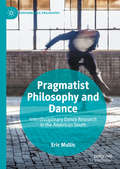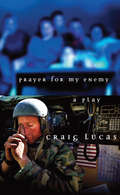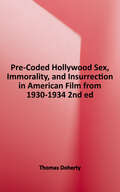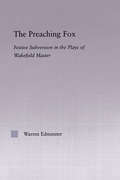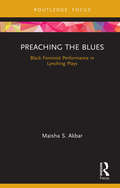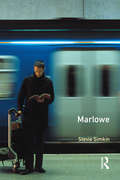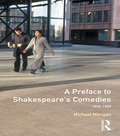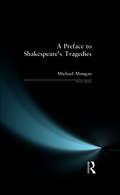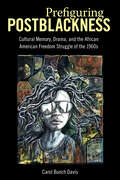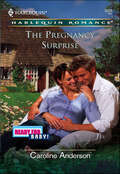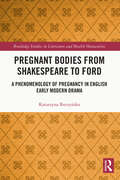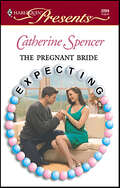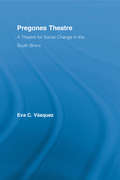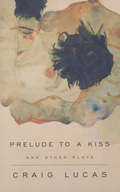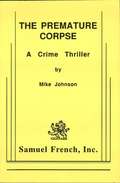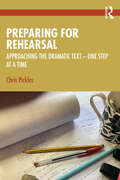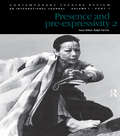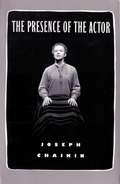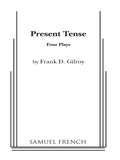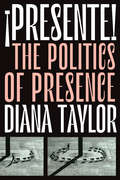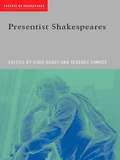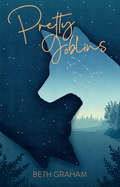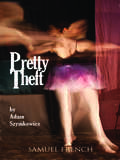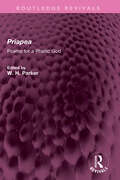- Table View
- List View
Pragmatist Philosophy and Dance: Interdisciplinary Dance Research in the American South (Performance Philosophy)
by Eric MullisThis book investigates how Pragmatist philosophy as a philosophical method contributes to the understanding and practice of interdisciplinary dance research. It uses the author's own practice-based research project, Later Rain, to illustrate this. Later Rain is a post-dramatic dance theater work that engages primarily with issues in the philosophy of religion and socio-political philosophy. It focuses on ecstatic states that arise in Appalachian charismatic Pentecostal church services, states characterized by dancing, paroxysms, shouting, and speaking in tongues (glossolalia). Research for this work is interdisciplinary as it draws on studio practice, ethnographic field work, cultural history, Pentecostal history and theology, folk aesthetics, anthropological understandings of ecstatic religious rituals, and dance history regarding acclaimed works that have sought to present aspects of religious ecstasy on stage; Doris Humphrey's The Shakers (1931), Mark Godden’s Angels in the Architecture (2012), Martha Clarke’s Angel Reapers (2015) and Ralph Lemon’s Geography trilogy (2005). The project thereby demonstrates a process model of dance philosophy, showing how philosophy and dance artistry intertwine in a specific creative process.
Prayer for My Enemy
by Craig Lucas"America the addicted. America the numb. America the war weary. America the lonely. All these countries compose the jagged terrain of this viscerally potent new play."--The Seattle Times "The very best we can hope for is to show the mess of life in such a way as to perhaps awaken our shared capacity for embracing it, in all its beauty and terror."--Craig LucasCraig Lucas "can masterfully distill a world of hurt and perplexity into complicated relations and single, pithy lines" (The Seattle Times), which is never more evident than in his latest play of public and private turmoil in today's America. Here we find the Noone family: son Billy returns from Iraq, his pregnant sister Marianne marries Billy's friend and former lover Tad, his mother Karen tries to keep her husband Austin from falling off the wagon--all while the Red Sox and Yankees battle for the 2004 pennant. With Prayer for My Enemy, Lucas returns to the dark territory he has explored with earlier works, "bringing light and craft to previously unlit corners," and illuminating the ways he is "one of the American theater's best writers" (Variety).Craig Lucas is a playwright, screenwriter, and director of both theater and film. His plays include Prelude to a Kiss, The Dying Gaul, Small Tragedy, Blue Window, God's Heart, The Singing Forest, and the book for the Tony Award-winning musical The Light in the Piazza. He is currently associate artistic director at the Intiman Theatre in Seattle.
Pre-Code Hollywood: Sex, Immorality, and Insurrection in American Cinema, 1930-1934
by Thomas DohertyThis book explores the fascinating period in American motion picture history from 1930 to 1934 when the commandments of the Production Code Administration were violated with impunity in a series of wildly unconventional films--a time when censorship was lax and Hollywood made the most of it. Though more unbridled, salacious, subversive, and just plain bizarre than what came afterward, the films of the period do indeed have the look of Hollywood cinema--but the moral terrain is so off-kilter that they seem imported from a parallel universe. In a sense, Doherty avers, the films of pre-Code Hollywood are from another universe. They lay bare what Hollywood under the Production Code attempted to cover up and push offscreen: sexual liaisons unsanctified by the laws of God or man, marriage ridiculed and redefined, ethnic lines crossed and racial barriers ignored, economic injustice exposed and political corruption assumed, vice unpunished and virtue unrewarded--in sum, pretty much the raw stuff of American culture, unvarnished and unveiled. No other book has yet sought to interpret the films and film-related meanings of the pre-Code era--what defined the period, why it ended, and what its relationship was to the country as a whole during the darkest years of the Great Depression... and afterward.
The Preaching Fox: Elements of Festive Subversion in the Plays of the Wakefield Master (Studies in Medieval History and Culture #32)
by Warren E. EdminsterFirst published in 2005. Volumes in the Medieval History and Culture series include studies on individual works and authors of Latin and vernacular literatures, historical personalities and events, theological and philosophical issues, and new critical approaches to medieval literature and culture. Momentous changes have occurred in Medieval Studies in the past thirty years, in teaching as well as in scholarship. The Medieval History and Culture series enhances research in the held by providing an outlet for monographs by scholars in the early stages of their careers on all topics related to the broad scope of Medieval Studies, while at the same time pointing to and highlighting new directions that will shape and define scholarly discourse in the future. This volume is a collection of Wakefield Master’s festive plays. Characters threaten the audience with comic bravado, engage in mocking tomfoolery, and parody any number of sacred forms; it is behavior unexpected by modern students of the drama, especially from what we assume was a serious and religious medieval past, and it is unlike what we find in the other mystery cycles.
Preaching the Blues: Black Feminist Performance in Lynching Plays (Routledge Advances in Theatre & Performance Studies)
by Maisha S. AkbarPreaching the Blues: Black Feminist Performance in Lynching Plays examines several lynching plays to foreground black women’s performances as non-normative subjects who challenge white supremacist ideology. Maisha S. Akbar re-maps the study of lynching drama by examining plays that are contingent upon race-based settings in black households versus white households. She also discusses performances of lynching plays at Historically Black Colleges and Universities (HBCUs) in the South and reviews lynching plays closely tied to black school campuses. By focusing on current examples and impacts of lynching plays in the public sphere, this book grounds this historical form of theatre in the present day with depth and relevance. Of interest to scholars and students of both general Theatre and Performance Studies, and of African American Theatre and Drama, Preaching the Blues foregrounds the importance of black feminist artists in lynching culture and interdisciplinary scholarship.
A Preface to Marlowe (Preface Books)
by Stevie SimkinThis study provides an authoritative overview of all Marlowe's work. It includes thorough investigations of his major plays, Tamburlaine, Edward II, The Jew of Malta and Doctor Faustus as well as a full discussion of The Massacre at Paris, Dido Queen of Carthage and all his extant poetry. Analysis of Faustus takes full account of both A and B text versions. Thoroughly researched and yet presented in an accessible, engaging style, A Preface to Marlowe reads Marlowe's life and times, as well as his work, in the light of current critical theory. Consequently, it is a vital guide for all students of early modern drama. As well as providing sharp analysis of stage history, Dr Simkin reflects on the wider significance of a stage-oriented approach. The result is a reading of Marlowe that re-opens debates about his status as a radical figure and as a subversive playwright and invites the reader to experience the plays as immediate, exciting, 'live' documents.
A Preface to Shakespeare's Comedies (Preface Books)
by Michael ManganThis is an informative and interesting guide to the comedies of love - The Two Gentlemen of Verona, The Taming of the Shrew, Love's Labour's Lost, A Midsummer Nights Dream, Much Ado About Nothing, As You Like it and Twelfth Night - which were written in the early part of Shakespeare's career. As well as supplying dramatic and critical analysis, this study sets the plays within their wider social and artistic context.Michael Mangan begins by considering the social function of laughter, the use of humour in drama for handling social tensions in Elizabethan and Jacobean society and the resulting expectations the audience would have had about comedy in the theatre. In the second section he discusses the individual plays in the light of recent critical and theoretical research. The useful reference section at the end gives the reader a short bibliographic guide to key historical figures relevant to a study of Shakespeare's comedies and a detailed critical bibliography.
A Preface to Shakespeare's Tragedies (Preface Books)
by Michael ManganThis book is a study of four of Shakespeare's major tragedies - "Hamlet", "Othello", "King Lear" and "Macbeth". It looks at these plays in a variety of contexts - both in isolation and in relation to each other and to the cultural, ideological, social and political contexts which produced them.
Prefiguring Postblackness: Cultural Memory, Drama, and the African American Freedom Struggle of the 1960s
by Carol Bunch DavisPrefiguring Postblackness explores the tensions between cultural memory of the African American freedom struggle and representations of African American identity staged in five plays between 1959 and 1969 during the civil rights era. Through close readings of the plays, their popular and African American print media reviews, and the cultural context in which they were produced, Carol Bunch Davis shows how these representations complicate narrow ideas of blackness, which often limit the freedom struggle era to Martin Luther King's nonviolent protest and cast Malcolm X's black nationalism as undermining the civil rights movement's advances.These five plays strategically revise the rhetoric, representations, ideologies, and iconography of the African American freedom struggle, subverting its dominant narrative. This revision critiques racial uplift ideology's tenets of civic and moral virtue as a condition of African American full citizenship. The dramas also reimagine the Black Arts movement's restrictive notions of black authenticity as a condition of racial identity, and their staged representations construct a counter-narrative to cultural memory of the freedom struggle during that very era. In their use of a "postblack ethos" to enact African American subjectivity, the plays envision black identity beyond the quest for freedom, anticipating what blackness might look like when it moves beyond the struggle.The plays under discussion range from the canonical (Lorraine Hansberry's A Raisin in the Sun and Amiri Baraka's Dutchman) to celebrated, yet understudied works (Alice Childress's Wine in the Wilderness, Howard Sackler's The Great White Hope, and Charles Gordone's No Place to Be Somebody). Finally, Davis discusses recent revivals, showing how these 1960s plays shape dimensions of modern drama well beyond the decade of their creation.
The Pregnancy Surprise (Ready for Baby!)
by Caroline AndersonPregnant? Impossible! But somehow it’s true.Maisie McDowell is about to become a single mom-with no knowledge of how she got that way...Dr. James Sutherland’s patients usually suspectedthey were pregnant, but Maisie seemed honestlybewildered by the news. Luckily James is also Maisie’sneighbor, and able to offer her support...and more.But after all Maisie has been through, how can he puthimself first and tell her that all he wants is to marryher and be a father to her unborn child...?
Pregnant Bodies from Shakespeare to Ford: A Phenomenology of Pregnancy in English Early Modern Drama (Routledge Studies in Literature and Health Humanities)
by Katarzyna BurzyńskaThis book explores how the pregnant body is portrayed, perceived and enacted in Shakespeare’s and his contemporaries’ drama by means of a phenomenological analysis and a recourse to early modern popular medical discourse on reproduction. Phenomenology of pregnancy is a fairly new and radical body of philosophy that questions the post-Cartesian chasm of an almost autonomous reason and an enclosed and self-sufficient (male) body as foundations of identity. Early modern drama, as is argued, was written and staged at the backdrop of revolutionary changes in medicine and science where old and new theories on the embodied self-clashed. In this world where more and more men were expected to steadily grow isolated from their bodies, the pregnant body constituted an embattled contradiction. Indebted to the theories of embodiment this book offers a meticulous and detailed investigation of a plethora of pregnant characters and their “pregnant embodiment” in the pre-modern works by Shakespeare, Middleton, Webster and Ford. The analysis in each chapter argues for an indivisible link between an intensely embodied experience of pregnancy as enacted in space and identity-shaping processes resulting in a more acute sense of selfhood and agency. Despite seemingly disparate experiences of the selected heroines and the repeated attempts at containment of their “unruly” bodies, the ever transforming and “spatial” pregnant identities remain loci of embodied selfhood and agency. This book provocatively argues that fictional characters’ experience reflects tangible realities of early modern women, while often deflecting the scientific consensus on reproduction in the period.
The Pregnant Bride (Expecting!)
by Catherine SpencerGetting jilted at the altar was bad enough, but falling for the sympathetic stranger at her honeymoon hotel was much worse! Jenna Sinclair didn't regret it, though; one passion-filled night with Edmund Delaney proved she'd never truly loved her ex-fiancé.But when Jenna told Edmund she was pregnant, he was far from dismayed. It seemed he had his own agenda, and marriage to Jenna was just what he needed.... Why?
Pregones Theatre: A Theatre for Social Change in the South Bronx (Latino Communities: Emerging Voices - Political, Social, Cultural and Legal Issues)
by Eva Cristina VásquezFirst published in 2004. Routledge is an imprint of Taylor & Francis, an informa company.
A Prelude to a Kiss and Other Plays
by Craig LucasThis collection brings back into print one of Craig Lucas' best known and enduring works, A Prelude to a Kiss, which was both a hit on Broadway and a popular motion picture. Frank Rich in The New York Times wrote about Prelude, "It is rare to find a play so suffused with sorrow that sends one home so high." Also included are Missing Persons, "a truly intelligent play, one that is literary and heartfelt, beautifully written...a well-crafted, moving story, a dramatic rarity in these or any times "(New York Post), and Three Postcards, an offbeat and uniquely imaginative free form musical play.Craig Lucas is also the author of Reckless and Blue Window and What I Mean Was. He lives in Putnam Valley, New York.
Premature Corpse
by Mike JohnsonCrime Thriller / 3m, 3f / Interior / This masterfully plotted show has so many twists and turns that we're going to tell you only the bare minimum of the story so you can enjoy the surprises when you read the script. On the surface, it's a "love triangle" tale: State's witness Evan Jorris, under a government protection program after testifying against the mob, has a wife, Francine, who along with her lover, lawyer Larry Craig contrives to do away with her husband, confident that Evan's protector, federal agent Bert Marshak, will assume, logically, that the mob did the deed, and never suspect the two of them. This deceptively simple setup, however, is not at all what it seems. By the end of the first act, you may smugly think you can second guess the play's outcome but in the second and final act, you'll ruefully discover that you not only don't know what's what you don't even know who's who! The author of that super stunner THE PERFECT MURDER has so many shocks and surprises up his insidious sleeve that you'll be downright popeyed as they explode into life, in this show that's a surefire way to dazzle and delight your audience. We'll say no more. Just get this show, quick! You and your audiences are in for the time of your lives!
Preparing for Rehearsal: Approaching the Dramatic Text – One Step at a Time
by Chris PicklesA resource for actors, directors, and writers (both professional and in training), this is a step-by-step, practical guidebook to the pre-rehearsal analysis of a script. Its aim is to de-mystify and organise the questions necessary to ask in order to prepare for a creative, imaginative and fruitful exploration of a dramatic text in the journey towards rehearsal.The language is unselfconsciously engaging and accessible, uncluttered by alienating academic vocabulary. It holds out a helping hand throughout the important and sometimes rather lonely time of preparation for rehearsal, a time of exploration usually spent without the reassuring guidance of a director or dramaturg. The volume takes the reader on a journey, chapter by chapter, from first reading of a script to arrival in the rehearsal room or film studio for the first readthrough or day of shooting. The book maps out six investigations for the actor or director, and most importantly, the order in which those explorations should be tackled. This book also forms the basis of any core text analysis module for students studying on professional acting, theatre arts, scriptwriting, media, and film or directing degrees at a university, college, or conservatoire level.A professional director, actor and writer, this guide is also a result of Chris Pickles’ many years of experience not only in running workshops for theatre professionals, but also teaching text analysis to actors and directors in training.
Presence and Pre-Expressivity 2
by Ralph YarrowThis is Volume 7, Part I of the Contemporary Theatre Review, an International Journal, with this edition focusing on Prescence and pre-expressivity. Covering topics such as Body in Mind: Exploring Pre-Expressivity; Peter Brook and Traditional Thought; Grotowski, Holiness, and the Pre-Expressive; Barba's Concepts of the Pre-Expressive and the Third Organ of the Body of the Theatre and Theories of Consciousness; Pre-Expressivity: Some Thoughts from the Rehearsal Floor.
The Presence of the Actor
by Joseph ChaikinChaikin, who directed the celebrated Open Theater in the '60s, kindled an emphasis on communal playmaking whose impact is still evident today. This conversational review of his efforts details his methods and reveals the struggles involved in the creation of some of the most exciting theatre of our time.
Present Tense
by Frank D. GilroyDrama / 1m, 1f / Interior / Father peeks out the window while the doorbell rings. Mother knows it's "her" by her ring, and Father keeps watching and refusing to let "her" in. The madness mounts as they do not open the door, and the father finally spills the beans he is leaving. This is an avant garde, Beckett-like script.
¡Presente!: The Politics of Presence (Dissident Acts)
by Diana TaylorIn ¡Presente! Diana Taylor asks what it means to be physically and politically present in situations where it seems that nothing can be done. As much an act, a word, an attitude, a theoretical intervention, and a performance pedagogy, Taylor maps ¡presente! at work in scenarios ranging from conquest, through colonial enactments and resistance movements, to present moments of capitalist extractivism and forced migration in the Americas. ¡Presente!—present among, with, and to; a walking and talking with others; an ontological and epistemic reflection on presence and subjectivity as participatory and relational, founded on mutual recognition—requires rethinking and unlearning in ways that challenge colonial epistemologies. Showing how knowledge is not something to be harvested but a process of being, knowing, and acting with others, Taylor models a way for scholarship to be present in political struggles.
Presentist Shakespeares (Accents on Shakespeare)
by Hugh Grady Terence HawkesPresentist Shakespeares is the first extended study of the principles and practice of 'presentism', a critical movement that takes account of the never-ending dialogue between past and present. In this bold and consistently thought-provoking collection of presentist readings, the contributors: argue that the ironies generated by our involvement in time are a fruitful, necessary and an unavoidable aspect of any text's being, and that presentism allows us to engage with them more fully and productively demonstrate how these ironies can function as agents of change, flowing unstoppably back into the events of the past, colouring how we perceive them and modifying our sense of what they signify show that a critic's inability to step beyond time and specifically the present does not, as has been argued elsewhere, 'contaminate' readings of Shakespeare's plays, but rather points to shades of implication suddenly available here and now within the wide range of plays examined suggest that presentism might not merely challenge or expand our sense of what Shakespeare's plays are able to tell us, but may in fact offer the only effective purchase on these texts that is available to us. Presentist criticism is an open-ended and on-going project, located at a particularly interesting and demanding juncture in modern Shakespeare studies. At this crucial point, then, Presentist Shakespeares is a compelling collection of readings by a distinguished team of authors, but it is also much more: it is a landmark, which reflects, develops and even rejoices in the intedeterminacy of the field. Contributors include: Catherine Belsey, Michael Bristol, Linda Charnes, John Drakakis, Ewan Fernie, Evelyn Gajowski, Hugh Grady, Terence Hawkes and Kiernan Ryan.
Pretty Goblins
by Beth GrahamFrom holding hands in the womb to holding each other’s hair back when they puked, twins Laura and Lizzie grew up only having each other. They couldn’t count on their practically feral mom, absent dad, or even the boys they liked. They’re polar opposites—Laura’s reserved while Lizzie’s reckless—but their shared mischievous giggles and dreams for the future kept them going. One day, Laura finds a familiar book of poems in Lizzie’s apartment and is dragged through their turbulent past. Together, the sisters relive their complicated history in an effort to make sense of the present. Framed by the beauty of a well-loved poem, this story of ferocious sisterhood, addiction, and the aftermath of trauma will leave howls echoing in your ears.
Pretty Theft
by Adam SzymkowiczDrama / Characters: 3m, 4f Pretty Theft is a play about ballerinas, boxes and the dangers of beauty. After losing her father, Allegra falls under the wing of bad girl Suzy, only to find an unexpected friendship with Joe, an autistic savant. When things take a violent turn, Allegra and Suzy escape cross country and befriend Marco, a mysterious thief who claims he cannot be caught. "Disturbing but touching...Mr. Szymkowicz writes quirky plays about contemporary topics like online dating and gender roles, but there always seems to be something - a knife, a rope, a dead body - in an unexpected place. In Pretty Theft, the undercurrent of danger goes beyond quirkiness; it's more subtle and ultimately more horrifying. The play takes place in a terrifying world where reckless people get hurt, and so do more or less innocent bystanders." -The New York Times "Szymkowicz has not only taken the notion of theft and flipped it on its head - he's taken a story about human beings at their worst and shown how we can claw our way back from the brink by finding the good within ourselves." -The Villager "Adam Szymkowicz has written a play full of interesting people...The dialogue and humor in this play are excellent...It runs a lean, intermission-less 90 minutes and is very satisfying...This would be good theater for young women not only to see but also to perform." -NYTheatre.com
Priapea: Poems for a Phallic God (Routledge Revivals)
by W. H. ParkerFirst published in 1988, Priapea is a collection of eighty Latin epigrams, English translated, that make up the corpus Priapeorum, which displays remarkable skill, artistry and wit. Their elegance of style contrasts strikingly with their indecent subject matter. The poems are mostly spoken by, or addressed to, the lewd god Priapus, famous for the size and tenseness of his erect membrum virile or phallus. A main theme is the threatened use of his formidable organ to assault obscenely any intruders that he may catch thieving, but requests and offsprings made to Priapus, and his comparison of himself with other deities, also figure prominently among the poems. This book will be of interest of literature, classical studies, and translation studies.
